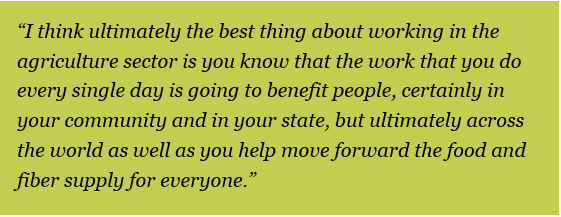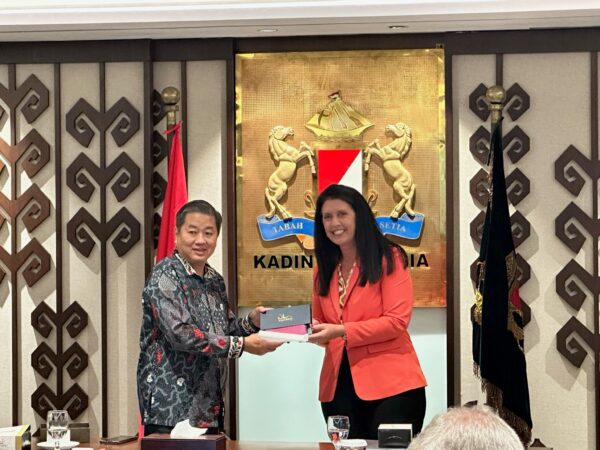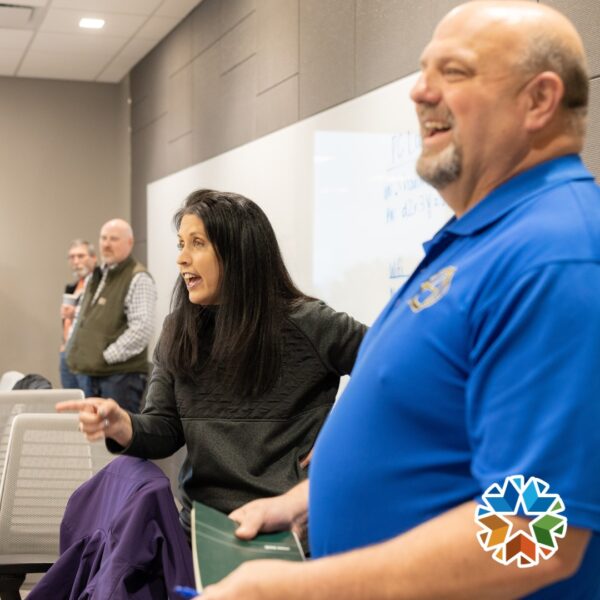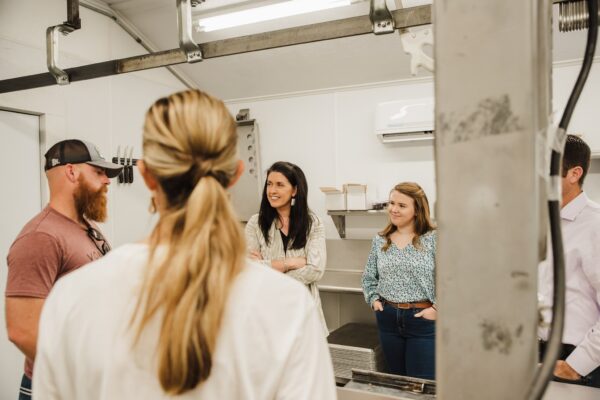Blog

State agriculture commissioners, secretaries and directors each lead departments and programs unique to their state. Yet, they all play a role in advocating for farmers and agricultural businesses while protecting the people of their state. The National Association of State Departments of Agriculture (NASDA) recently interviewed Oklahoma Agriculture Secretary Blayne Arthur as part of its Work In Ag series to gain insights into the vital role that the chief state agricultural officers play in promoting and advancing farmers and the food system within their respective states.

Arthur says one of her main goals in her position is to boost prospects for local producers and businesses.
“One of the primary goals here in my function at the department of agriculture is to increase opportunities for our ‘Made in Oklahoma’ companies which are our local producers – and that could be everything from beef producers to folks who are making salsa or jellies or jams,” Arthur said.
She shared that this includes expanding market opportunities for them, not only domestically, but also internationally. Branding Oklahoma products for consumers who are paying more attention to where their food comes from not only supports local farmers, but also stimulates the state’s economy.

“Something that we’ve seen over the last couple of years is kind of this new enthusiasm in local products and consumers wanting to know who’s producing their food, how they’re producing it, where it’s being produced. And we’re really working on expanding that awareness, but also building up that supply chain at the same time to make sure that that’s an easy path for those smaller and medium sized producers to have access to both the domestic and international markets for all their products.”
While not everyone is aware of the agricultural industry in their daily lives, Arthur said the agriculture industry impacts everyone, not just those who work in the field.
“We talk a lot in the agriculture industry about how there is less than two percent of the U.S. population who are involved in production agriculture every day, but we also say that 100 percent of people like to eat every single day,” Arthur said. “So the work that we do here at the department of agriculture, and certainly the work that our farmers and ranchers do, impacts citizens every single day because of the food that they are consuming. A big part of what we do is make certain that they have the most accessible, affordable, safest food supply that you can find anywhere in the world.
We always like to remind our consumers, no matter where they live – in an urban area or a rural area – agriculture is very important to them.”
Working in an industry that covers all Oklahomans means Arthur collaborates with division directors on a wide range of issues from wildfire management to seed and fertilizer regulation to policy issues. She and her team also engage directly with farmers and ranchers, ensuring that government officials are in-touch with farmers and see their challenges from the field. While Arthur says there are no typical days in her position, the employees in her department work under the united mission to uplift the agriculture industry in ways that best benefit everyone in the state.
“A lot of the day is just talking with folks, doing a lot of listening,” Arthur said. “We really work to do a lot of listening here so that we can try to improve processes and improve the way that government works. So, every day is different. But ultimately my goal here at the agency, and I would say all of our division directors’ goals, is to do a better job with our responsibilities. Ultimately that’s having good conversation with the folks that we work with and impact every day.”
As Arthur strives to continue advancing her department and life for Oklahomans, she encourages others to consider a career in agriculture. For students or professionals seeking a meaningful profession or considering a career change, agriculture offers a world of opportunities. Arthur highlights that agriculture is not limited to those with a farming background. The sector welcomes individuals with diverse skills and interests; mechanics, engineers, researchers, communicators, pharmacists, veterinarians and farmers are just a few of the positions available in the agricultural realm.
“No matter your personal interest or your studies that you’re working on, there is a space for you in the agriculture sector,” Arthur said. “I think ultimately the best thing about working in the agriculture sector is you know that the work that you do every single day is going to benefit people, certainly in your community and in your state, but ultimately across the world as well as you help move forward the food and fiber supply for everyone.”
Learn more about careers in agriculture that might interest you at nasda.org/workinag.
###
NASDA is a nonpartisan, nonprofit association which represents the elected and appointed commissioners, secretaries and directors of the departments of agriculture in all 50 states and four U.S. territories. NASDA enhances American food and agricultural communities through policy, partnerships and public engagement. To learn more about NASDA, please visit www.nasda.org.
Contact Information
The agricultural sector encompasses a vast and diverse array of career opportunities, both on and off the farm. Careers in agriculture can span across various sectors and disciplines, from business, research and development, environment, food safety, technology, engineering, technology and more. Learn more about careers in agriculture at nasda.org/WorkInAg.



